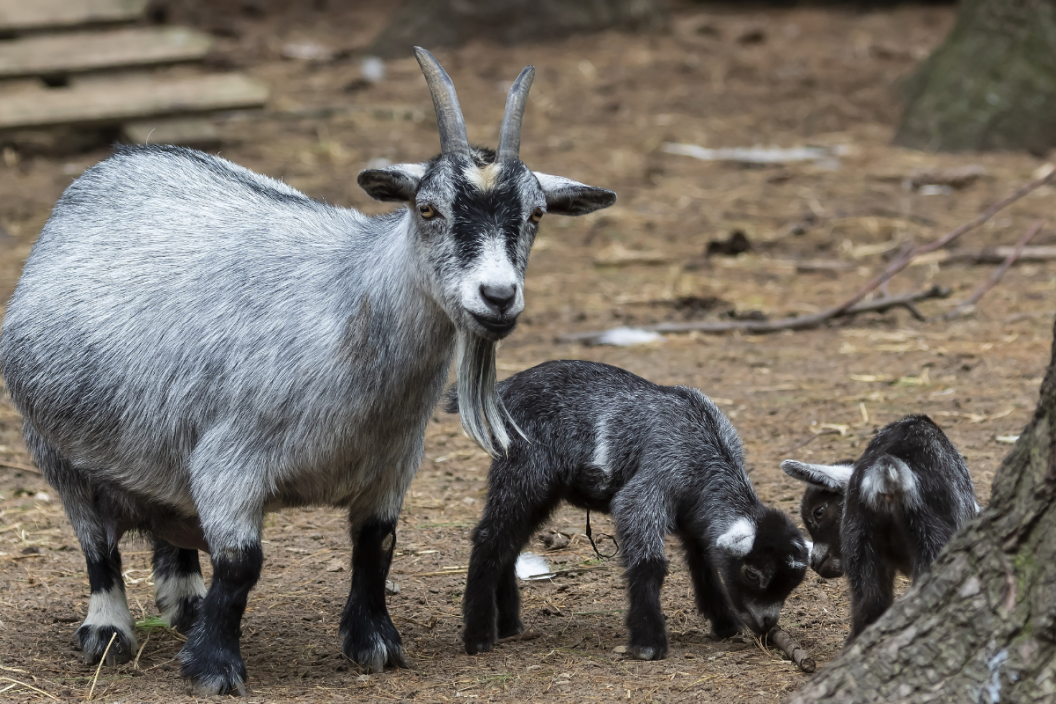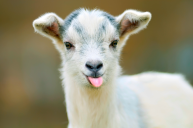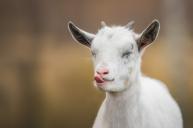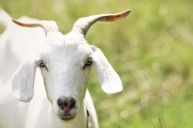If you're looking for a small, friendly goat that can be a great pet goat or that can supply you with milk, the African pygmy goat might be the perfect choice.
These hardy yet docile goats can adapt to many different climates and require only minimal shelter and care, plus they can provide you with milk. Whether you're planning to compete with your goat or are hoping to breed Pygmys, there are plenty of ways that you can put a Pygmy goatto use on your farm.
Originating from the Cameroon Valley of West Africa, the Pygmy goat is a popular breed of miniature domestic goat. African pygmy goats were brought to the United States from European zoos in the 1950s and were subsequently used in zoos and for animal research. Eventually, they were acquired by private breeders and began to be sold as companion animals and farm animals.
Characteristics
https://www.instagram.com/p/B1sW_GiArLS/
Pygmys are one of the smaller goat breeds and range between 15 to 20 inches in height at their withers. Female goats (does) weigh between 35 and 50 pounds, while male goats (bucks) weigh slightly more and come in around 40 to 60 pounds. While these are small goats, their bodies are compact and lack the refinement that you'll see in breeds like Nigerian Dwarf goats.
These goats come in many different coat colors, with coats ranging from light to dark caramels, light to dark grey agouti, brown agouti, black with frosted points, and even solid black. Their coats are straight and medium-long, and the coat density varies as the seasons change. Adult males have generous beards, though females may not develop bears.
Despite their size, these West African goats are quite stocky and can weather any climate. In addition to their tough constitution, Pygmys have an aloof but friendly personality. Does have overall friendly temperaments, but bucks are known to be a bit stubborn and independent, although good-natured nonetheless. This combination of hardiness and positive disposition are two characteristics that make Pygmy goats great pets and show animals.
Milk Production
https://www.instagram.com/p/B1sPpt-giDD/
While these goats are most commonly kept as pets or used as meat goats, they can also be used for milk production. Typical Pygmy goat gestation lasts approximately 155 days, and there are between 1-2 baby Pygmy goats per litter. Pygmy does can produce, on average, between one to two quarts of 4.5% to 11% butterfat milk. Their milking period, however, is shorter than other dairy goats, producing milk for only 120 to 180 days out of the year.
Caring for Pygmy Goats
https://www.instagram.com/p/B1rh8JWhkzO/
Just like any other breed of goat, Pygmys need shelter and fencing that helps to prevent them from escaping. These goats are active and entertaining, and if you construct a playground of obstacles in their pen, they'll provide you with hours of entertainment. Their small size means they don't require as much space as larger breeds need, making them a great addition to a home or small farm.
The National Pygmy Goat Association states that as long as these goats receive a good quality grass/alfalfa hay mix and a bit of molasses-free grain, they'll only need to be supplemented with trace mineral salt. If your area lacks certain nutrients, like selenium, you'll need to supplement these nutrients, too. Plenty of fresh water is also necessary to keep your goats healthy. Finally, make sure that your pygmy goats receive all of their vaccinations.
How Much Are Pygmy Goats?
https://www.instagram.com/p/B1rUFPqA52E/
If you're looking to purchase a goat, the NPGA has a list of registered breeders on their site. The price can vary greatly, depending on their ability to breed and whether or not they have been registered. While a pet quality goat can cost anywhere between $40 and $70, a registered and intact Pygmy buck can go for as much as $350 or more.
This post was originally published on August 19, 2017.




